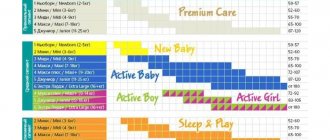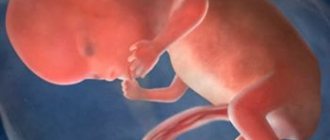During pregnancy, a woman’s body undergoes a number of changes: the volume of circulating blood increases by 50%, the heartbeat and breathing become more frequent, the level of leukocytes, fibrinogen, and ESR (erythrocyte sedimentation rate) in the blood increases, intestinal tone decreases, and much more. The mother's body's need for many foods, vitamins and microelements also changes. Today we will talk about one of the microelements, namely calcium during pregnancy (Ca) and the need for additional intake of its preparations.
Indications for use
During pregnancy and subsequent breastfeeding, many women experience deterioration in the condition of their hair, nails and teeth. Sometimes women experience a pathological taste addiction to chalk, salt, and lime. This was especially common among our grandmothers during the war years.
information
All this is explained by the increase in the woman’s body’s need for Ca during pregnancy. The need for it greatly increases in the second and third trimesters of pregnancy. During these months, the baby’s active growth occurs, namely its skeleton and soft tissues. It is, of course, possible to replenish the body’s need for this microelement only with the help of food, but for this you will have to drink up to 1-1.2 liters of milk daily or eat about 2.5 kg of cottage cheese, and this is only in the first months of pregnancy.
The daily requirement for Ca in the first trimester is 1 g, in the second – 2 g, and in the third – 2.5 g. Plus, vitamin D, the so-called “solar vitamin”, is necessary for its absorption, and due to the busy schedule of life and Due to the peculiarities of the climate in our latitudes, not everyone manages to spend 50-60 minutes in the sun every day. Therefore, pregnancy from the 20th week and breastfeeding are immediate indications for prescribing calcium supplements.
Calcium supplements for pregnant women. Which ones to choose and which is better and cheaper? From when is it accepted?
During pregnancy, the expectant mother needs to receive the required amount of vitamins and minerals.
Often a pregnant woman experiences a deficiency of calcium, which is an important building material for bones and teeth, also stimulates hair growth and has a beneficial effect on the nervous and cardiovascular systems. It is possible to compensate for calcium deficiency with the help of special products and medications. Calcium prevents rickets in a baby, depression and allergies in a poor mother. The article describes popular vitamins and preparations containing calcium, as well as its benefits and the consequences of hypocalcemia.
Drugs
Whether we need them or not, we have already decided. Now let's discuss in more detail which of them is better. So, what calcium supplements are there during pregnancy:
- Single drugs
. They contain only calcium:- Ca citrate;
- Ca carbonate;
- Ca lactate.
- Combination drugs
, which, along with calcium itself, includes, most importantly, vitamin D, which, as we already know, is necessary for better absorption of Ca itself, and also various additional microelements: zinc, copper, manganese, boron.- (Ca 250 mg, vitamin D 50 IU, zinc 2 mg, copper 0.5 mg, manganese 0.5 mg, boron 50 mcg);
- Calcium D3 Nycomed (Ca 500 mg, vitamin D 200 mg).
- Multivitamins for pregnant women
:- Teravit pregna;
- Materna and others.
Multivitamins for pregnant women most often contain about 150-200 mg of Ca, so they can only be used as an addition to other medications.
Diagnostics
Even if the expectant mother finds one or more of the symptoms described above, she should not immediately run to the pharmacy for calcium supplements. After all, hypocalcemia can only be confirmed by laboratory diagnostics, in particular, a biochemical blood test . Therefore, it is better to go not to the pharmacy, but to your attending physician, and ask him for a referral for biochemistry.
The test requires a small amount of venous blood. You need to take it on an empty stomach, having eliminated fatty, spicy and too salty foods from your diet within two days.
If you are taking any medications and it is not possible to stop taking them for several days, you must inform the doctor and the medical staff performing the blood sampling.
If a calcium deficiency is determined in the laboratory, the doctor will definitely advise the pregnant woman about what calcium supplements she should start taking in order to make up for this deficiency and avoid negative consequences for her own health and the well-being of the baby.
Prohibited calcium supplements
Taking any medications should be agreed with your gynecologist, as there are always a number of contraindications,
conditions in which calcium should not be taken during pregnancy:
- increased individual sensitivity to the components that make up the drug;
- urolithiasis disease;
- overdose of vitamin D;
- hyperparathyroidism - pathological hyperfunction of the parathyroid glands;
- decalcifying tumors (melanoma, sarcoidosis) and others;
- renal failure;
- tuberculosis.
There are also a number of drugs that contain calcium as an excipient. Their use is strictly prohibited during pregnancy.
Reviews
Based on the reviews left by expectant mothers on specialized forums for future and current parents, it becomes obvious that most women prefer not to choose separate calcium supplements, but to take multivitamins that contain this macroelement. The best reviews are most often found on drugs such as Elevit Pronatal and Vitrum Prenatal.
Among the drugs prescribed for the treatment of hypocalcemia, the leaders are “Calcemin” and “Calcium D3 Nycomed”. According to women, these drugs are well tolerated and do not cause side effects. Among the most inexpensive, “Calcium gluconate” and “Calcium chloride” deserve a positive rating.
However, most pregnant women are sure (and quite rightly!) that the best calcium is the one found in food, since it is more natural for the human body and is much better absorbed.
In the next video you will learn more information about the role of calcium during pregnancy.
medical reviewer, psychosomatics specialist, mother of 4 children
source
Application
additionally
You should start taking calcium supplements at 20 weeks of pregnancy and continue as long as you are breastfeeding. The frequency and dosage depend on the type of tablet and should always be determined by your doctor. The drugs are intended for oral use and should be swallowed whole or chewed. You should drink a small amount of water. Calcium should not be washed down with milk or other dairy products and consumed simultaneously with bran and spinach. All these products impair microelement absorption.
Where to get calcium
After diagnosing calcium deficiency, the doctor prescribes a specific drug. There are a lot of calcium complexes. As a rule, calcium is not available in pure form, but only in the form of salt. Manufacturers often use the following compounds (the actual calcium content in parentheses):
- gluconate (9.3%);
- chloride (27.25%);
- carbonate (40%);
- citrate (21.05%).
There are other compounds, but they are less commonly used in pharmacology. This:
- lactate;
- phosphate;
- glycerophosphate;
- acetate;
- citrate.
Table: calcium supplements
| Calcium gluconate | Compound | Release form | Features of use during pregnancy | Contraindications | Manufacturer | Price, rubles | Other Features |
| Calcium gluconate | Tablets and injection solution | Possible by doctor's prescription |
| Russia |
| Also available with fruit additives and cocoa flavor | |
| Kalcemin |
| Pills | The drug is allowed during pregnancy, but consultation with a doctor is necessary |
| Russia, USA | From 300 to 900, depending on the number of tablets in the package (30, 60, 120) | Available in two forms: Kalcemin and Kalcemin Advance. The differences between the latter and the former are the double dosage of active ingredients and the presence of magnesium. |
| Calcium D3 Nycomed |
| Chewable tablets with orange, mint, strawberry and watermelon flavors | The official summary recommends using the drug with caution during pregnancy. A doctor's consultation is required. |
| Russia, Norway | From 300 to 500, depending on the number of tablets in the jar (50, 60, 100) | Available in two forms: Calcium D3 Nycomed and Calcium D3 Nycomed Forte. The latter contains 2 times more active ingredient and is available only with lemon flavor. |
Photo gallery: calcium supplements most often prescribed during pregnancy
Calcium D3 Nycomed contains the highest dose of calcium compared to other drugs
A complex calcium supplement is often prescribed to pregnant women.
Calcium gluconate contains a minimal dose of calcium
Safety of use for the fetus and mother
Taking calcium supplements does not have a negative effect on the fetus during pregnancy or on the child during breastfeeding.
What do we know about calcium for pregnant women
?
Is it really necessary to take it in the form of drugs, as advertising on radio and television convinces us? Does such a need arise during pregnancy and why is calcium needed
? After all, you are probably haunted by a phrase dropped by one of your friends: “How my teeth deteriorated after childbirth! This means there was not enough calcium during pregnancy, but no one told you!” I would like to answer this and other questions.
Calcium accounts for 2% of a person's weight. It forms the basis of bone tissue, is part of enzymes, and is involved in the transmission of nerve impulses and muscle contraction. Calcium is an important component of the blood coagulation system. This element is present in the human body in the largest quantity. Of the total “reserve” of calcium (1-1.5 kg in an adult - about 20 g per kilogram of body weight), approximately 98-99% is in bone and cartilage tissue. As old bone cells break down, new ones are formed, so constant replenishment of this element is necessary.
Calcium for pregnant women: what is calcium for?
The calcium requirement is 1000 mg per day for non-pregnant women aged 19 to 50 years and 1300 mg for those under 18 years of age. During pregnancy and lactation this number increases to 1500 mg. A growing fetus needs calcium in excess quantities both for the growth of bones and teeth, and for the formation of the nervous system, heart and muscles. It is difficult to overestimate the role of calcium in regulating heart rhythm and blood clotting. Calcium is necessary for the development of all tissues of the child, including nerve cells, internal organs, skeleton, eye tissue, ear tissue, skin, hair and nails. Research shows that approximately 250-300 mg of calcium per day passes through the placenta to the fetus.
The increase in maternal circulating calcium normal for pregnancy and the increase in calcium excretion in the urine, which is also observed with good nutrition, further increases a woman’s need for calcium. These needs are usually offset by an increase in the absorption of calcium from food, which is caused by the action of pregnancy hormones.
What to eat during pregnancy
There is a lot of calcium in milk and dairy products (especially low-fat). Also in some vegetables - cabbage, cauliflower, garlic, celery, parsley, fruits and berries. For example, in gooseberries, currants, strawberries, cherries. A lot of calcium is found in animal cartilage (and why not mention jellied meat!) and fish.
Some foods, such as cereals, sorrel, currants, gooseberries, and spinach, slow down the absorption of dietary calcium. These products contain phytic or oxalic acids, which, as a result of interaction with calcium, form insoluble salts - phytates and oxalates, and the absorption of calcium is difficult. Therefore, food compatibility must be taken into account. Excessive consumption of products containing caffeine: cola, coffee, tea, can also disrupt calcium metabolism, so it is not recommended to abuse them, especially during pregnancy.
Among the diseases of a pregnant woman in which the absorption or assimilation of calcium is impaired, gastrointestinal diseases should be mentioned: peptic ulcers and cholelithiasis, chronic colitis - inflammation of the large intestine, accompanied by diarrhea (diarrhea), chronic hepatitis (inflammation of the liver). Among endocrine diseases, it is worth mentioning diabetes mellitus, hyperparathyroidism (disease of the parathyroid glands), thyrotoxicosis (disease of the thyroid gland), as well as bronchial asthma and other diseases that require the use of glucorticoids - hormonal drugs normally produced by the adrenal glands.
Lack of calcium: what to eat during pregnancy
Research shows that in 17% of cases during uncomplicated pregnancy, 2-3 months before birth, symptoms of calcium deficiency appear in the form of paresthesia (a feeling of “crawling goosebumps”), convulsive twitching, muscle spasms, bone pain, etc. In pregnant women with gestosis (complications of pregnancy, manifested by increased blood pressure, the appearance of protein in the urine, edema) these symptoms are more common - in approximately half of the observations. The situation worsens with poor nutrition and unfavorable climatic conditions (lower concentrations of vitamin D and calcium in the blood are observed in the spring-winter period than in the summer-autumn period).
Consequences of calcium deficiency
in the body are caries, osteoporosis (increased bone fragility), osteomalacia (softening of bones and their deformation). Lack of calcium in the body also contributes to the development of toxicosis in the first half of pregnancy, gestosis. Calcium eliminates the discomfort of a pregnant woman: muscle pain, cramps in the lower extremities, palpitations.
Calcium deficiency
may lead to fetal growth retardation; it is also one of the causes of rickets in children, because During the prenatal period, conditions for normal bone growth are formed. An obvious marker of trouble in this area is the number of teeth that a woman has lost during pregnancy and lactation. As mentioned above, changes in mineral metabolism during pregnancy with calcium deficiency affect the bone tissue and dental tissue of a woman. The situation is aggravated if the mother is breastfeeding. It is known that in nursing mothers, during the first 6 months after birth, the content of mineral components in the spine decreases compared to 2 days after birth.
It has also been proven that calcium deficiency
during pregnancy and breastfeeding increases the incidence of osteoporosis during menopause, which increases the likelihood of fractures.
Recently, researchers have discovered a connection between hypertension (high blood pressure) in pregnancy and calcium deficiency. Pregnancy-associated hypertension (PAH) complicates the course of approximately one in ten pregnancies and is a major risk factor for infant and maternal mortality, as well as severe complications. There are facts that suggest the positive effect of adding calcium to the diet for the prevention and treatment of AOHB. The mechanisms through which calcium can lower blood pressure are not yet known, but there is evidence that calcium supplements are effective in treating these conditions.
What to eat during pregnancy: diet
If you are healthy and do not have chronic diseases of the gastrointestinal tract or any other problems mentioned above, you can limit yourself to consuming increased amounts of calcium-rich foods.
Based on the norm of 1300-1500 mg per day, this could be:
- 200 g of medium fat cottage cheese (4%) - 300 mg of calcium,
- 200 ml low-fat kefir (1-1.5%) - 240 mg calcium,
- 200 ml of milk (the milk used to cook the porridge is also taken into account) - 240 mg of calcium,
- 50 g of cheese, such as cheddar - 500 mg of calcium.
Total: 1280 mg calcium.
In addition to these products, include walnuts, cabbage, fish, and berries, such as cherries and raisins, in your menu. You can increase the amount of calcium to 1500 mg only if you consume 3-4 dairy products per day, which will “cover” the minimum daily requirement.
In addition, the expectant mother needs walks, always during the daytime (we only get vitamin D in the sun). Their duration should be at least 45 minutes per day. If you do not like or do not tolerate dairy products, do not spend the required time outside, drink a lot of coffee, tea or smoke, and if the last 2-3 months of your pregnancy occur in the winter-spring period, then without additional non-food sources of calcium you not enough.
| Dairy |
| Processed cheese |
| Hard cheese |
| Goat cheese |
| Celery |
| Rye bread |
| Wheat bread |
| Fruits and nuts: |
| Orange |
| Dried apples |
| Pumpkin seeds |
| Sunflower seeds |
| Fish and meat: |
| Dried fish with bones |
| Canned sardines with bones |
| Boiled fish |
| Beef |
It should be noted that the least calcium is contained in calcium gluconate, which is widespread in Russia, and the largest amount is in carbonate. All preparations containing calcium salts can be divided into three groups:
- single preparations containing only calcium salt;
- combination preparations containing calcium salts, vitamin D
- or vitamin C, and in some - mineral elements such as magnesium, zinc, boron;
- multivitamins that contain calcium salts. Among the first group, CALCIUM D3 NYCOMED has proven itself well, containing 1250 mg of calcium carbonate (500 mg of calcium element) and 200 IU of cholecalciferol (vitamin D) in one tablet. It belongs to the group of combined preparations of calcium and vitamin D. Recent studies have shown the effectiveness of a combination of calcium salts and vitamin D in the prevention and treatment of calcium-phosphorus metabolism disorders. The use of this drug ensures sufficient intake of calcium and vitamin D into the body and helps prevent bone loss. With its use in pregnant women, symptoms of calcium deficiency decrease or disappear. The therapeutic dose of the drug for pregnant women with manifestations of calcium deficiency is 2 tablets per day, the prophylactic dose is 1 tablet per day. The drug does not cause side effects and is safe for pregnant women. Taking calcium supplements in combination with vitamin D in the last 2 months of pregnancy is justified; it has a beneficial effect on calcium-phosphorus metabolism in the mother, fetus and newborn, and helps prevent rickets in children in the first year of life. Multivitamins or vitamin complexes for pregnant women contain at least 150-200 mg of calcium (VITRUM PRENATAL WITH CALCIUM, MATERNA, etc.), which can be recommended for preventive purposes to almost all healthy pregnant women as an additional source of calcium.
In conclusion, I would like to add: learn to listen to your body! He will always tell you what he is missing and... Thus, with calcium deficiency, a desire arises to eat chalk or plaster, and an addiction to cheese and milk appears.
Dear future mothers! You will need a lot of strength to carry your long-awaited babies in your arms, which means you need strong bones and muscles. It’s good if your teeth remain snow-white and strong so that you can smile at your kids without embarrassment. So be healthy and happy and don’t forget about such a useful substance as calcium!
A woman during pregnancy needs nutrients, vitamins and microelements. They go not only to ensure the normal functioning of the expectant mother’s body, but also to the development of the fetus. The list of the most important elements includes calcium.
If there is a deficiency, doctors may prescribe special medications. For example, many women are prescribed calcium gluconate during pregnancy, which replenishes the deficiency of the element in the body.
What interferes and helps the absorption of calcium from foods
It is worth clarifying that the figures presented above are inaccurate, since the body does not absorb all the calcium. For example, an adult will receive only 15% of microelements from cow's milk, while an infant receives 50%. The reason for this is lifestyle. There are factors that interfere with and help in the absorption of minerals.
Factors that interfere with the absorption of calcium into the body are:
- sweet carbonated water, candy;
- foods high in magnesium, iron, zinc and phosphorus;
- excess or deficiency of fat, the ratio of calcium to fat should be 1:100;
- alcohol, nicotine and energy drinks;
- cocoa, coffee, tea, chocolate;
- foods high in oxalic acid (sorrel, beets, spinach, rhubarb);
- White bread;
- oatmeal and semolina porridge, due to its phytin content.
This microelement is better absorbed next to vitamin D and phosphorus. Therefore, during pregnancy you should:
- walk more in the sun, in this case the body produces vitamin D itself;
- eat fish and fish liver;
- do light exercise;
- consume fermented milk products, as they contain lactose, which helps in the body’s absorption of the microelement;
- There are onions and garlic, they contain sulfur, which also helps absorption.
By following all the tips, you can maximize the intake of minerals in the body during pregnancy. But there are cases when absorption depends on human physiology, for example, fragile blondes are susceptible to osteoporosis.
Why does an expectant mother need calcium?
Expectant mothers need to constantly replenish the reserves of this element, because thanks to calcium, tooth and bone tissue are formed. The baby needs it for proper skeletal development. The element also plays a very important role in the formation of the nervous system.
Calcium ions regulate various intracellular processes - hormone secretion, exocytosis, muscle contraction. The amount of this element absorbed by the baby in the womb determines his mental and physical development after birth.
Lack of calcium during pregnancy
With calcium deficiency, many representatives of the fair sex experience the following symptoms: paresthesia (a feeling of “crawling goosebumps” throughout the body); muscle contraction; convulsive twitching; bone pain.
Both the expectant mother herself and her unborn baby suffer from a lack of calcium during pregnancy.
Pregnant women may experience the following consequences:
- deterioration of the condition of teeth, hair, nail plates;
- increased fragility of bones, their softening and deformation;
- severe toxicosis in the first half of pregnancy;
- the occurrence of gestosis;
- miscarriage;
- early birth;
- fast fatiguability;
- weakening of labor during contractions;
- excessive excitability, nervousness, anxiety.
Due to a lack of calcium during pregnancy, a child may experience the following problems:
- defective development of systems and organs;
- weakened bone skeleton;
- rickets.
Daily calcium intake during pregnancy
The daily calcium requirement during pregnancy is about 1500 mg. The fetus receives 2-3 mg per day in the first trimester. Gradually this figure is growing. In the third trimester, the baby already needs more - 250-300 mg. Women after childbirth require about 2000 mg of calcium during breastfeeding.
How to compensate for calcium deficiency?
It is worth remembering that the maximum amount of calcium enters the human body precisely with products that include this valuable microelement and should be included in the daily diet.
Quite a large amount of calcium is also found in fermented milk products, as well as milk. But it is worth considering the fact that they should not be too fatty. The fact is that calcium, interacting with saturated animal fats, will be practically not absorbed, therefore, there will simply be no benefit from consuming such products. The ideal option would be to choose natural yogurt (without adding various flavoring additives), kefir, cheese and low-fat cottage cheese.
However, getting calcium into the body of a pregnant woman through food may have certain difficulties. The fact is that full absorption of this microelement will occur only in combination with potassium, vitamin D, phosphorus and magnesium. But at the same time, iron can seriously slow down this process and reduce the efficiency of calcium absorption into the intestinal walls.
To compensate for the lack of calcium in a pregnant woman’s body, special preparations can be used. However, when choosing a particular vitamin complex, it is imperative to consult with your doctor, who is monitoring the course of your pregnancy, since he will be the one who will be able to select the ideal drug that meets all the needs of your body.
For a pregnant woman, the daily calcium intake is 1500 milligrams, and during breastfeeding this figure increases to 2000 milligrams. It is advisable to take calcium vitamin complexes on an empty stomach and before bedtime, since this element will be absorbed much more effectively by an empty stomach.
Taking calcium gluconate during pregnancy
Calcium deficiency can be replenished with the help of a drug such as calcium gluconate, which is available in solution, powder and tablets. Pregnant women can take it only as prescribed by a doctor. It is the specialist who determines the dosage of calcium gluconate during pregnancy.
The drug is contraindicated in cases of hypersensitivity, severe hypercalciuria, and sarcoidosis. It is forbidden to take calcium gluconate simultaneously with cardiac glycosides, as arrhythmia may occur.
The drug should be used with caution in women with dehydration, diarrhea, electrolyte disturbances, malabsorption syndrome, mild hypercoagulation, and moderate renal failure.
Thus, you cannot prescribe the drug yourself. An excess of the element can also cause harm.
If calcium levels are exceeded during pregnancy, taking the drug can lead to:
- the fetal bones will lose elasticity (this will complicate its passage through the birth canal);
- the fontanel will take a long time to overgrow;
- the load on the kidneys will increase, because their task is to remove excess calcium;
- there will be a possibility of ossification of the placenta.
The drug has side effects. Taking calcium gluconate during pregnancy in the form of tablets may cause irritation of the gastrointestinal mucosa and constipation. When administering the drug intravenously or intramuscularly, there is a small chance of a burning sensation in the mouth and a feeling of heat. In addition, calcium gluconate injections during pregnancy may lower blood pressure or develop arrhythmia.
Other drugs
When you need calcium tablets for pregnant women, which one should you choose so that you don’t have to swallow large pills? "Calcium-Sandoz Forte" is presented in effervescent tablets that easily dissolve in water. The calcium content in one tablet is 500 mg. A special feature of this product is the presence of citric acid in its composition. Therefore, if you have hypersensitivity to this component or stomach problems, it should be abandoned in favor of another remedy. Also contraindicated for diabetes and kidney problems.
As a rule, the body needs not only calcium tablets for pregnant women. Which complex type drug should I choose? Some people prefer “Calcemin” due to the fact that in addition to calcium, it also contains other minerals - zinc, copper, manganese. It is also recommended by doctors in cases where pregnant women complain of pain in the calves or are predisposed to gestosis. “Calcemin” is strictly forbidden to be combined with vitamin A. You should not take it with a laxative, since most of the elements will not be absorbed.
Calcium in natural products
Pregnant women should remember that the body’s needs for calcium can be met not only with the help of drugs containing it. Proper nutrition and a balanced diet play an important role. By consuming foods rich in calcium during pregnancy, you can avoid a deficiency or excess of this element.
One of the main sources of calcium is dairy products
. You can safely include milk, kefir, yogurt, cottage cheese, sour cream, and cheese in your diet.
An excellent source of calcium are legumes
. Especially among them are beans, soybeans, peas, and green peas.
You can avoid taking calcium supplements during pregnancy if you include fish products
(eg salmon, sardine). This element is also found in almonds, pistachios, hazelnuts, barley, oatmeal, eggs, and seaweed.
However, it is worth remembering that calcium from foods is not completely absorbed. Better absorption can be achieved thanks to vitamin D. It is found in dairy products, fatty fish, egg yolk, and butter. It can also be synthesized in the body under the influence of sun rays.
When a woman is carrying a baby, her body acts as a supplier of all building materials for the full development of the child’s body. Calcium occupies a special place in this process. It not only forms the entire musculoskeletal system of the fetus, but also ensures the uninterrupted functioning of the mother’s nervous system. If there is a catastrophic lack of calcium, the body begins to take this mineral from the bones and teeth and gives it to the baby. Subsequently, the condition of the woman’s bone tissue deteriorates, muscle tone is disturbed, and teeth deteriorate. How important is calcium during pregnancy? How to recognize a pathological condition in a timely manner? And where to look for the source of this mineral? Let's put everything in its place to get rid of unnecessary worries and prevent possible health problems.
Being “pregnant”, a woman instinctively begins to eat more healthy food in order to provide the baby with the complex of substances necessary for development. The need for calcium increases two or even three times. If the diet is balanced and the woman has no contraindications to consuming dairy products, then this mineral is enough for two. But poor ecology, lack of natural cow's milk in stores and health problems do a disservice to pregnant women. And there is often a question about taking additional calcium tablets during pregnancy.
Calcium needs of pregnant women
The daily calcium intake during pregnancy ranges from 1500 to 2000 mg. At the same time, in the early stages of pregnancy, the baby takes no more than 10 mg, but starting from the second trimester, he needs at least 300 mg of calcium ions per day. Calcium during pregnancy, like a conductor, directs the most important organs and systems. It is part of all bones and cartilage of the fetus, forms the skin, eyes and nerve cells. A sufficient amount of calcium contributes to the normal mental development of the child after childbirth.
On a note!
The normal level of calcium in the blood of a pregnant woman is 2.15-2.5 mmol/l.
But for the mother it is no less important. Calcium has a good effect on a woman’s nervous state, prevents hypertonicity of the uterus and night cramps in the limbs, and also supports blood clotting to avoid postpartum hemorrhage. Calcium is involved in carbohydrate metabolic reactions. It reduces the amount of “bad” cholesterol and provides sufficient glucose. After childbirth, a sufficient amount of calcium allows you to keep a woman’s teeth and hair safe and sound. And milk rich in this element serves as a prevention of childhood rickets.
Important!
Excess calcium is also dangerous. Only a gynecologist can make a decision regarding the use of calcium supplements.
Symptoms of calcium deficiency in women
Calcium deficiency occurs gradually and is not always accompanied by severe symptoms. A deficiency of this substance can only be unequivocally confirmed by a clinical blood test. But this condition can be suspected by a sharp deterioration in a woman’s appearance: hair becomes dull and “lifeless”, the skin flakes and seems to tighten, nails peel and crack, and at night severe cramps in the calf muscles are disturbing. More than 20% of women in an “interesting” situation become hostage to hypocalcemia. This is facilitated by a deficiency of foods rich in calcium, abuse of caffeine-containing drinks (tea, coffee), baked goods, pasta and salty foods. In addition, low activity, passive smoking and intestinal dysbiosis affect calcium absorption.
On a note!
A severe calcium deficiency is indicated by sensitive tooth enamel, bleeding gums, bone pain and nervousness.
The body's need for calcium
At different periods of life, a person needs his own daily need for calcium. Also, its size is influenced by the person’s gender and the presence of health problems.
For women and men aged 12-25 years, the daily requirement for calcium is 1200 mg. And after 25 years it decreases to 800 mg. Calcium during pregnancy and breastfeeding is required in an amount of 1500 to 2000 mg per day. This is due to the fact that for the child, the mother is virtually the only source of calcium. The doctor must determine the required daily intake based on test results.
What are the dangers of calcium deficiency during pregnancy?
A severe calcium deficiency causes a decline in the mother's immune system. A woman experiences allergic reactions and often develops viral infections and inflammatory processes. Sharp jumps in blood pressure may occur, and the condition of the skin also worsens. In general, the woman notes a bad mood and loss of strength. If there was not enough calcium during the period of bearing a child, then difficulties also arise during the delivery process. Poor labor is observed with more pronounced pain, bleeding is possible due to blood clotting disorders. For a baby, calcium deficiency means problems with the functionality of the cerebral cortex, poor blood circulation, pathologies of the nervous system and rickets. In the first months of life, the baby will not gain weight well, much later teeth will begin to erupt, and the hormonal system will function worse. It is also worth considering that excess calcium is no less dangerous. Excessive intake of this mineral contributes to compaction of the cranial bones with subsequent birth injuries, calcification of the placenta and disruption of blood flow, and premature overgrowth of the fontanelle in the baby. The woman, in turn, may suffer from gallstone disease.
On a note!
Women who have experienced hypocalcemia during pregnancy are more prone to osteoporosis during menopause and the development of endocrinological diseases after 35 years.
Features of calcium
A greater predisposition to a lack of this mineral in the body is observed in women. Men are much less likely to encounter this problem.
When do you need calcium tablets for pregnant women? The composition will help you decide which one to choose. It must contain vitamin D (in particular, D3). Calcium itself is practically not absorbed; this requires vitamin D. But a situation may arise when the concentration of calcium in the body becomes too high. Which also has a negative effect on blood vessels and internal organs. Magnesium helps control elevated calcium levels.
By the way, if a woman’s menstruation is accompanied by painful sensations, one of the reasons may be calcium deficiency. Its level drops sharply about a week before the start of this period.
Bad habits significantly reduce the body's ability to absorb calcium. And large consumption of foods rich in carbohydrates contributes to the rapid removal of calcium from the body.
Food as a source of calcium during pregnancy
A properly adjusted diet can protect a woman from taking oral calcium supplements. This option is more desirable, since calcium from foods is completely absorbed and does not leave “surprises” in the form of kidney stones or intoxication from drug overdose. Where can you find the right amount of calcium to help maintain your health and provide for your baby? A favorite among calcium-rich foods is hard cheese. The average concentration of this element in cheese is 1000 mg, while a glass of cow's milk supplies only 200-240 mg. There is a little more calcium in goat milk - about 400 mg per glass, but this product is quite rare and you definitely won’t find it in the supermarket. An additional 300 mg of calcium can be obtained from a glass of natural yogurt or a serving of cottage cheese (homemade!). An alternative source of calcium ions is fish and other seafood. It is especially useful to feast on sardines (240 mg/100 g) or cod (20 mg/100 g). For a variety of dishes, brown algae (170 mg/100 g) and shrimp (47 mg/100 g) are suitable. It is imperative to eat fresh greens, which also contain enough calcium in combination with vegetable mixes. Among vegetables, the leaders in the amount of calcium are broccoli, celery, cucumbers and carrots, and among fruits - figs, currants, strawberries, peaches and oranges. Have small snacks of dried fruits, seeds and nuts. Instead of a side dish, choose beans and peas, because they contain no less calcium than milk. To ensure proper nutrition gives positive results, avoid excessive consumption of tea, cocoa and oatmeal. These products “wash” calcium from the stomach, preventing it from being fully absorbed.
Advice!
Calcium prefers proximity to vitamin D and phosphorus. Take frequent walks under sunny skies to ensure vitamin D is synthesized regularly in your body, and eat fish two to three times a week to replenish phosphorus levels.
There is a short list of foods that are best excluded when eliminating calcium deficiency. During pregnancy, calcium and products that contain it cannot fully “take root” in the body in combination with the following foods:
- Vegetables rich in oxalic acid: spinach, sorrel, rhubarb, cauliflower, beets.
- Porridges that contain phytin: oatmeal, semolina.
- Products with xanthines: cocoa, black and green tea, chocolate (any).
- Smoked meats, fatty or too salty foods.
- White bread.
- Carbonated sweet waters.
Did you know...
Additional sources of vitamin D include egg yolks, cod liver and traditional fish oil.
"Calcium-Active"
When the question arises about which calcium supplement is best for pregnant women, then, according to many experts, it is “Calcium-Active”.
This drug contains complexone. This component is responsible for ensuring proper calcium metabolism. In addition, calcium in the composition is of organic origin, so it is better absorbed.
It contains 200 mg of calcium. In addition, it contains vitamin D, amaranth extract and phosphorus. Among its undoubted advantages are very rare allergic reactions and an almost complete absence of side effects.
Use of calcium during pregnancy: types and dosage
Not every pregnant woman can drink liters of milk and eat 600-700 cottage cheese daily. Not to mention a history of lactose intolerance or pregnancy during the autumn-winter period, when there is sorely not enough sun to produce vitamin D. There is only one way out - take calcium tablets. It would be useful to remind you that these are not vitamins and this drug cannot be prescribed on your own. What calcium to take during pregnancy and whether it is needed at all is decided only by the gynecologist leading the pregnancy.
On a note!
Calcium medications are prescribed after the 12th week of pregnancy and can be taken until the end of the baby's feeding period, with the exception of the third trimester of gestation. If you need calcium supplements during pregnancy and don’t know what to take, it is better to consult a competent specialist.
Calcium D3 Nycomed
Calcium D3 is completely harmless during pregnancy and is approved for use. It is available in the form of combined chewable tablets in different flavors (orange, mint, lemon). The composition includes calcium carbonate, vitamin D3 and cholecalciferol. The drug completely eliminates the imbalance between calcium and phosphorus, restores the mineralization of tooth enamel and is 99% absorbed by bone tissue. Nervous excitability and sudden muscle contractions disappear. As part of the additional substances, this drug contains aspartame. Under the influence of enzymes, it is transformed into phenylalanine, so women with phenylketonuria are prohibited from taking Nycomed calcium during pregnancy. Lactose is also used as an auxiliary agent, so this remedy is not recommended for women with hypolactasia. Calcium dosage during pregnancy: for pregnant women, the optimal amount of calcium is 1500 mg, that is, 1 tablet per day. The duration of therapy is adjusted by the doctor, referring to the test results and the woman’s general well-being. The tablet can be dissolved or chewed.
Calcium gluconate
The drug is available in the form of monocomponent tablets (500 mg) or 10% solution for injection. Active substance - calcium gluconate, additional components - starch, silicon dioxide. Tablets should be taken orally before meals in an amount of 3-6 tablets. The duration of treatment is selected individually. Injections are administered intravenously or intramuscularly at 5-10 mg per day. During pregnancy, calcium gluconate in the form of injections is prescribed only in severe cases of hypocalcemia with a sharp deterioration in the woman’s condition and only in a hospital.
Advice!
It is better to combine calcium gluconate with an additional intake of an aqueous solution of vitamin D.
Calcide
One of the approved calcium supplements during pregnancy with positive reviews is the domestically produced drug Calcid. In addition to calcium and D3, it contains vitamins B, C, H, E, PP, folic and pantothenic acid, eggshell. The course of administration is at least 1 month, three capsules per day. This drug increases the level of calcium salts during pregnancy or lactation, also eliminates vitamin deficiency, allergic pathologies, and improves immunity.
Kalcemin
Combined drug with calcium and minerals. The composition includes: calcium carbonate, calcium citrate, zinc, copper, boron, manganese, vitamin D3. The base used is soy polysaccharide, cellulose, and silicon. An additional mineral complex prevents demineralization of bone tissue and promotes complete absorption of calcium salts. The daily norm for women in an “interesting” position is 2 tablets per day.
Interesting!
Calcemin cannot be combined with other calcium antagonists or vitamin complexes. Parallel use can cause intoxication from an overdose of calcium salts.
It is impossible to say unequivocally which is the best calcium during pregnancy. The prescription of the drug depends on the clinical picture of hypocalcemia and the sensitivity of the female body to the components of the drug. Most doctors in winter prefer combined types of calcium with vitamin D3, but in hot weather it is better to use regular calcium gluconate.
List of approved drugs
Calcium does not exist in its pure form in tablets or solutions. It is always combined with other substances that allow the main mineral not only to preserve, but also to enhance its properties. Therefore, in most cases, the names of drugs contain the names of two substances at once.
The vast majority of calcium supplements are not prohibited during pregnancy, but only a doctor who knows exactly how severe her mineral deficiency can choose the best one for a particular woman.
We have compiled a list of the most popular drugs prescribed to pregnant women for hypocalcemia.
"Calcium-Active"
This is a Russian drug, the composition of which is unique in its own way - in addition to calcium, it contains a substance that regulates calcium metabolism - complexone. The calcium itself in this product is organic and is well absorbed by the body. This calcium is of natural origin - pharmacists extract it from amaranth leaves. This plant is considered the record holder for its ability to accumulate this mineral.
Calcium supplements during pregnancy: indications for use and contraindications
There must be a compelling reason to obtain a prescription for calcium supplements. You shouldn’t just take this medicine for prevention, because the consequences can be very unpleasant. In order, as they say, not to bite your elbows, take note of when calcium tablets need to be taken and what this treatment can leave as a gift.
Indications for use:
- Risk of occurrence and treatment of osteoporosis.
- Lack of calcium or vitamin D3.
- Diseases accompanied by hypocalcemia.
- Excessive permeability of cell membranes.
- Impaired conduction of nerve impulses.
- Hyperphosphatemia in renal failure.
- Rickets.
- Spasmophilia.
- Osteomalacia.
- Lack of calcium in food during pregnancy and lactation.
- Postmenopausal period.
- Bleeding of various origins.
- Allergic conditions.
- Intoxication with magnesium salts.
- Prolonged bed rest.
- Frequently recurring diarrhea.
- Bone fractures.
When calcium intake is contraindicated:
- Intolerance to components.
- Hypercalcemia.
- Tendency to thrombosis.
- Atherosclerosis.
- Blood clotting disorder.
- Severe renal impairment.
- Prescribing medications based on digitalis.
- Calcium nephrourolithiasis.
- Hypervitaminosis of vitamin D3.
If you take calcium for a long time, you need to regularly monitor the level of creatinine and calcium in the blood. Monitoring of kidney and liver function is also indicated. If clinical indicators are violated, the drug is discontinued. If a pregnant woman is taking iron supplements, there should be a three-hour pause between taking calcium and iron tablets.
What complications can calcium tablets cause?
- Bradycardia (heart rhythm disturbances).
- Hypercalciuria (excessive excretion of calcium salts in the urine).
- Nausea, diarrhea, stomach pain, constipation, vomiting, bloating, calcification of stones.
- Swelling of the legs, frequent urination.
- Deposition of stones on teeth.
- Cholelithiasis.
- Rash, itching, redness on the skin.
Sufficient calcium intake during pregnancy is essential to keep mother and baby healthy. But doctors often play it safe and advise taking pills simply for prevention. This is an absolutely illiterate approach to women in such a delicate state. Therefore, whether to drink calcium during pregnancy or just eat well is up to you.
"Calcium D3 Nycomed"
Often the doctor believes that it is necessary to take calcium supplements for pregnant women. The list with those recommended by him usually includes two or three, from which you can choose one at your discretion.
One of them is “Calcium D3 Nycomed”. Many people have heard about it, so it is quite popular. It contains 500 mg of calcium and 200 IU of vitamin D. It must be taken twice a day, 1 tablet. Has a number of side effects. It can cause problems with stool and quite strong gas formation. Also, its effectiveness may decrease if it is used together with other drugs? with which it is incompatible.
Video “Why do you need calcium during pregnancy”
Thematic materials:
Cool wishes for a good evening How to knit a man's hat with knitting needles: patterns and knitting techniques My husband is hiding money from me Cool competitions for February 23rd for high school students Poems for a gift pen, notebook What they say when they give a pen Poems for newborns and little ones How to remove age spots from age spots face using folk remedies? Hardening children up to one year Hardening children from what age 1 month
103583
If you notice an error, select a piece of text and press Ctrl+Enter
What is calcium for?
https://youtube.com/watch?v=6VzTv9rlTM4
The bulk of calcium in the body is found in bone and cartilage tissue. The mineral forms inorganic salts that make up the human skeleton. According to scientists, up to 98 percent of calcium is found in bones, teeth and ligaments. The remaining two percent are scattered throughout all cells of the body and are involved in many vital processes:
- Promote the transmission of impulses between cells of the nervous system.
- Ensure the normal functioning of the endocrine and exocrine glands.
- They are assistants in the utilization of fatty acids.
- Activate hormonal processes.
Another vital effect of this chemical is the activation of the blood clotting system in response to damage to the integrity of blood vessels.
In addition, calcium takes part in the contractile activity of muscle tissue. This mineral regulates the tone of smooth muscles, which are part of the female reproductive system.
What foods contain calcium for pregnant women?
As mentioned, the most desirable way to get the extra calcium a pregnant woman needs is from food.
And the first tip for improving nutrition for pregnant women is to increase the amount of dairy products on the menu. Our grandmothers used this rule, but it is really effective. Milk, natural yogurt, low-fat cottage cheese, goat cheese, kefir, hard cheese, and yogurt will be beneficial. It is better to choose foods with less fat - they are rich in calcium, but contain fewer calories, and the expectant mother does not need extra pounds
An important rule: dairy products will be more beneficial if consumed with vegetables rather than with fatty foods. If you decide to boil vegetables, then remember that almost a quarter of the calcium from them will remain in the water, so it is better to prepare vegetable soup
In addition, the diet should include fish, eggs, cabbage (broccoli), walnuts, almonds (do not overdo it, because nuts are quite an allergenic product), celery, raisins, dried apricots, sunflower seeds
Pay attention to sesame: 100 grams of these seeds contain the daily requirement of the adult body for calcium. Sesame can be added to salads, it is good to use sesame oil
Eat dried apricots and bananas - they contain potassium, which is not only good for the heart, but also prevents calcium loss.
Also keep in mind that there are foods that slow down the absorption of this substance by the body. For example, spinach, sorrel, beets, cereals. In addition, products that contain caffeine accelerate the removal of calcium from the body. Therefore, a pregnant woman should not abuse caffeine-containing drinks and foods.
It is also important to remember that for more effective absorption of calcium, the body must also receive other vitamins and microelements: vitamin D, vitamin C, magnesium, phosphorus. Be sure to eat foods rich in such substances
For example, there is a lot of vitamin D in liver, eggs, and seafood. In addition, it is produced in the body under the influence of sunlight (15-20 minutes a day is enough). Therefore, try to walk outside more often, if the weather and health conditions allow.
And most importantly, remember: pregnant women need to follow the recommendations, but without excessive fanaticism. Listen to yourself, don't worry and be healthy!
Especially for - Ksenia Boyko
Many women, knowing about the need to use calcium during pregnancy, begin to look for medications for pregnant women that contain it. In most cases, such medicines contain vitamin D3, because Without it, calcium is practically impossible for the body.
Why do pregnant women need calcium?
According to standards, a woman aged 25-45 years should receive at least 1 g of calcium per day. For girls under 25 years of age, the norm is 1.3 g per day. During pregnancy and lactation, the need for this mineral increases and amounts to up to 1.5 g per day, and completely depends on the period.
This need is due to the fact that in the first trimester of pregnancy the fetus needs 2-3 mg every day for the formation of the bone apparatus and normal bone growth. As the period increases, the amount of calcium consumed by the fetus also increases. So in the 3rd trimester the baby needs 250-300 mg per day. As a result, only in the 3rd trimester the fetus accumulates approximately 25-30 g of calcium.
What calcium supplements are usually prescribed during pregnancy?
As a rule, during pregnancy, combined calcium preparations are prescribed, i.e. such medicines that contain not only calcium. They usually contain 400 mg of this substance.
An example of such could be
Also among calcium supplements prescribed during pregnancy, it is necessary to highlight Calcium-Sandoz Forte. It is available in the form of effervescent tablets, which must be dissolved in a glass of water before use. One tablet contains 500 mg
Due to the fact that this product contains citric acid, women who have problems with the digestive system should take the drug with caution.
The best calcium supplement for pregnant women can be called Calcium-Active.
This product contains a calcium metabolism regulator, a complexone, which stabilizes the “destruction-building” system of human bone tissue. In addition, the drug contains organic calcium from the amaranth plant, which ensures better absorption. Most often, 2 tablets are prescribed per day - one in the morning, the second in the evening. One tablet contains 50 mg of calcium, 50 IU of vitamin D3.
What are the possible side effects when using calcium supplements?
Overview of the market for modern drugs
On the shelves of pharmacies you can find many modern calcium-based drugs, each of which has its own positive and negative properties.
One of the most common medications prescribed for calcium deficiency is Calcium Carbonate with Magnesium. Taking this drug will fill the body not only with calcium, but also with magnesium.
“Calcium Carbonate with Magnesium” is widely known for its antacid effect on the gastrointestinal tract, but can cause hypercalcemia and impaired renal function. According to the instructions, use during pregnancy is allowed only in the first six months.
The role of calcium for the body
In the adult body, calcium is contained mainly in the skeleton and teeth, but besides this, it is also involved in various vital processes:
- Muscle and neural reactions.
- Affects blood clotting.
- Has anti-inflammatory and anti-allergic effects.
- Takes part in the activation of certain enzymes and hormones.
- Participates in the nucleus, cell membranes, tissue fluids.
- Increases the body's resistance to stress.
- Helps remove heavy metal salts from the body.
- Has an antioxidant effect.
- Positively affects the level of insulin and glucose in the blood.
But the most important function of this useful macroelement is its participation in the formation of bones, hair, teeth, and nails. Therefore, its biological role is so great for a woman while she is expecting a child, especially for strengthening her bones, on which a heavy load gradually increases with each trimester.
Diagnosis of hypocalcemia
Self-identified symptoms of calcium deficiency during pregnancy must be confirmed by a qualified specialist. If hypocalcemia is suspected, the doctor prescribes diagnostic measures to determine the content of the macroelement in the biological media of the body. The research methods used in practice are:
- general urine analysis;
- blood analysis;
- analysis of the mineral composition of hair;
- bone densitometry (determination of bone mineral density).
Diagnosis of hypocalcemia is associated with a number of difficulties, which are due to the characteristics of absorption and distribution of the macroelement in the body. In a non-ionized state, calcium binds to blood proteins, and low plasma total mineral levels may indicate a decrease in serum proteins rather than a macronutrient deficiency.
Ionized calcium (an active cation circulating in the blood plasma) is of greater importance for the regulation of intracellular processes, therefore diagnostic measures are often aimed at determining the amount of this element. Low levels of ionized cation also cannot reliably indicate hypocalcemia due to the high influence of vitamin D levels on this criterion.
Article on the topic: Stomatofit – instructions for use, indications and price
If there is no convincing evidence indicating a mineral deficiency, additional examinations are carried out. During pregnancy, hair mineral analysis is used due to its safety. Bone densitometry in pregnant women is carried out only if there are serious indications, since this method involves the impact of radiation (X-ray, magnetic, ultrasound) on the patient’s body, which can negatively affect the development of the fetus.
Calcium in reserve
It is important to say that excess calcium during pregnancy is just as dangerous as too little. Especially in the third trimester of pregnancy
An excess of this mineral can lead to premature closure of the large fontanelle and growth areas of the baby’s skull bones. Also, excess calcium helps to harden the bones of the baby’s head. And this is a problem during childbirth, the child cannot pass through the birth canal normally.
The baby's head loses the ability to shape well as it passes through the mother's birth canal. In turn, this increases the risk of injury to the baby during childbirth and rupture of the birth canal in the mother during the period of expulsion of the fetus.
During pregnancy, excess calcium can be deposited as calcifications in the placenta. And this disrupts its full-fledged work of supplying nutrients to the baby. The urinary system of the expectant mother also suffers from excess calcium. During pregnancy, the kidneys simply may not be able to cope with such a “calcium load”. As a result, the risk of sand or stones forming in the pregnant woman's kidneys increases.
Why do pregnant women need calcium?
To ensure normal functioning, a person needs to regularly saturate the body with macroelements, one of which is calcium. Ions of this element are involved in the processes of hemostasis, the synthesis of hormones and neurotransmitters, regulate muscle contractions and perform a number of other important functions. Calcium makes up up to 2% of body weight and is found in the skeleton and teeth, ensuring their structural strength.
During pregnancy, changes occur in a woman's body that affect all body systems. To build the skeletal system of the fetus, a restructuring of the mineral metabolism of the pregnant woman occurs - the absorption of phosphorus and calcium salts is enhanced, which are transferred to the embryo, determining its growth and development. During this period, women may develop a tendency to hypofunction of the parathyroid glands, which manifests itself in impaired calcium metabolism.
To prevent the consequences that may arise from a deficiency of an important macronutrient during pregnancy, it is necessary to satisfy the body's daily need for the mineral. Lack of the element can lead to the development of hypocalcemia, which is fraught with the following manifestations:
- disruption or arrest of the physical and mental development of the fetus;
- the emergence of a risk of developing rickets (bone formation disorder) in a newborn;
- development of depression in the expectant mother;
- the possibility of spontaneous abortion (the macroelement is responsible for the functioning of muscle organs, including the uterus, its deficiency negatively affects the contractility of muscles, causing their increased tone);
- the occurrence of arterial hypertension due to pregnancy;
- disorders of cholesterol and fat metabolism.
You can independently determine the lack of calcium in the body during pregnancy based on the specific symptoms of hypocalcemia, but the daily intake of this macronutrient should be increased only after consultation with a doctor who is monitoring the pregnant woman. Taking any medication during pregnancy should be done under medical supervision.
In most cases, the prescription of calcium-containing medications or the addition of calcium-rich foods to the diet occurs from the second trimester (no earlier than the 13th week of gestation). The duration of taking vitamin-mineral complexes or following a special diet should be carried out without interruption for no more than 1 month, and after the 35th week of pregnancy, the use of drugs that fill the deficiency should be stopped to prevent premature ossification of the fetal head.
Calcium and pregnancy
This element is present in the body of any person in large quantities. According to medical research, calcium accounts for up to 2% of total body weight. In addition to the fact that it is the basis of bone tissue and is necessary for the growth and restoration of the skeleton, the functioning of the nervous system, the production of enzymes, and the contraction of muscle fibers cannot occur without its participation.
The entire supply of calcium is contained in bones and cartilage. Considering that in the process of growth and development of the body, bone tissue is constantly renewed, the microelement in question also requires replenishment.
The need for this substance in pregnant women increases several times. If before conception the need for calcium was about 800-1000 mg per day, then when carrying a baby and breastfeeding, this amount increases by 50% - up to 1500 mg per day.
This picture is due to the fact that during the formation of certain body systems of the unborn baby, a large amount of the mineral is required. Calcium is involved in the construction of the following internal organs:
- skeleton;
- teeth;
- nervous system;
- hearts;
- muscle fibers;
- eyes and ears;
- nails and hair;
- skin.
It is also invaluable in regulating heart rate, as well as in the process of blood clotting. According to medical research, about 350 mg of calcium is transferred through the blood vessels of the placenta to the fetus in one day.
On the other hand, pregnant women experience a natural loss of the mineral from the body. The fact is that when carrying a baby, due to the peculiarities of the physiological state, a woman drinks water and goes to the toilet more often. This helps to wash out the element in question from the bone tissue. However, thanks to certain hormones released in the body of pregnant women, foods containing calcium are processed more efficiently.










